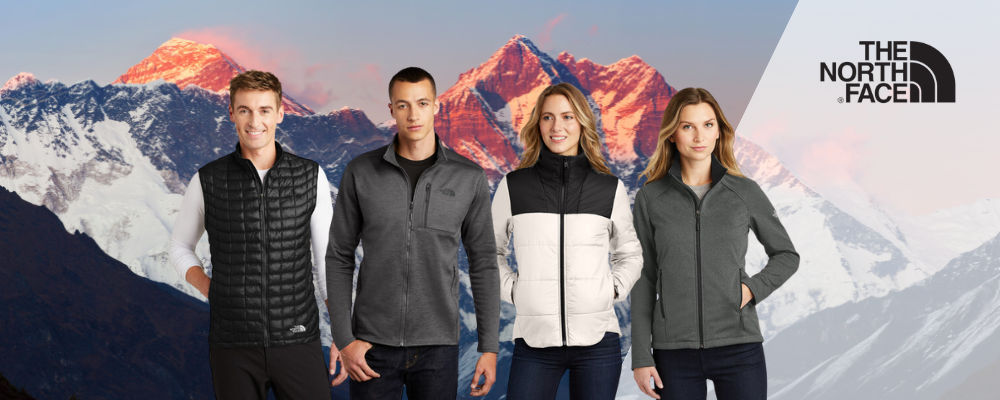Many businesses today are engaging in “conscious consumerism”— making purchasing decisions based on their perceived social, economic, or environmental impact. In fact, we wrote a blog about this behavior last year (“What is Conscious Consumerism, and Why is it So Popular?,” Feb. 22, 2023).
Fortunately for these businesses, a number of well-known brands have also embraced this practice, donating a percentage of their profits to charitable organizations or modifying their manufacturing methods to minimize their impact on the environment.
In this blog, we’ll provide an overview of some of these socially responsible brands and how they are expressing their conscious consumerism. This is not an exhaustive list, just a random sampling of some of the larger brands (each of whom OnFulfillment has a relationship with). If your business has a mandate to practice conscious consumerism and you’re in the market for branded apparel or other giveaways, you might want to give these vendors a look.
Allmade
Allmade makes eco-friendly t-shirts, outerwear, blankets, and beanies in ethical factories designed to build “better jobs and communities.” Each of their tri-blend t-shirts keeps the equivalent of six plastic bottles out of landfills, requires less water to produce, and emits fewer carbon emissions than more traditional production methods.
The Allmade story began in Haiti, where the founders created dignified, ethical-wage jobs that empowered the locals to “take care of themselves and their families.” Eight years later, the company operates in Honduras and India, where their facilities are powered by renewable energy.
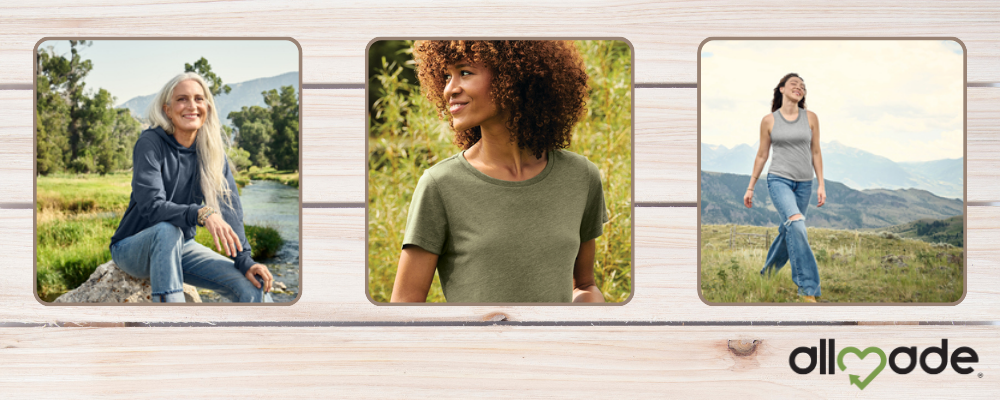
Brevite
Brevite makes a variety of backpacks, camera bags, and fanny packs which are available online as well as at brick-and-mortar stores such as Nordstrom, Anthropologie, and Urban Outfitters.
In addition to making popular backpacks, the company is also “on a mission to create lasting change for the greater good” in their communities, their supply chain, and with their people. Brevite uses sustainable, ethically sourced materials in the manufacturing process, and has donated more than $500,000 worth of backpacks to various charitable organizations to date.
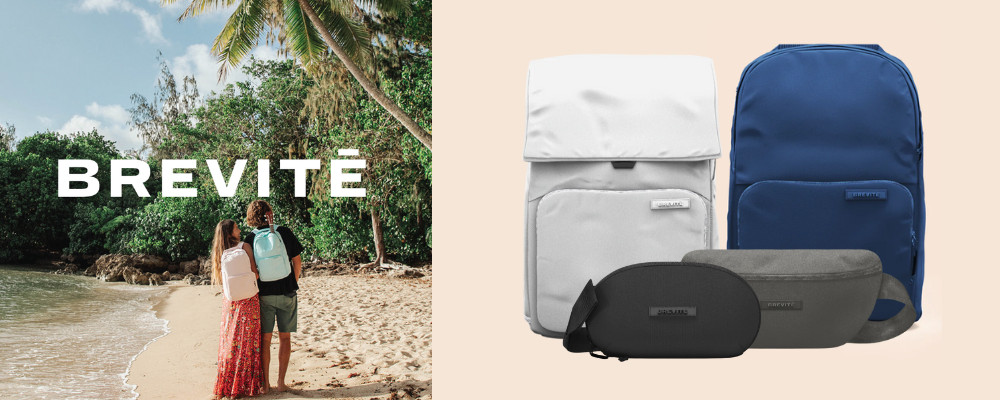
Cotopaxi
Cotopaxi builds rugged, ethically and sustainably sourced backpacks, duffel bags, hydration packs, and other gear that “fuels both outdoor experiences and global change.”
To demonstrate its commitment to social responsibility, the Cotopaxi Foundation provides grants to nonprofits that help communities facing extreme poverty. Cotopaxi is also a member of the 1% for the Planet organization, donating at least 1% of its annual revenue to groups working to create a healthier planet. To date, the company has reached an estimated 3.8 million people through its charitable programs.
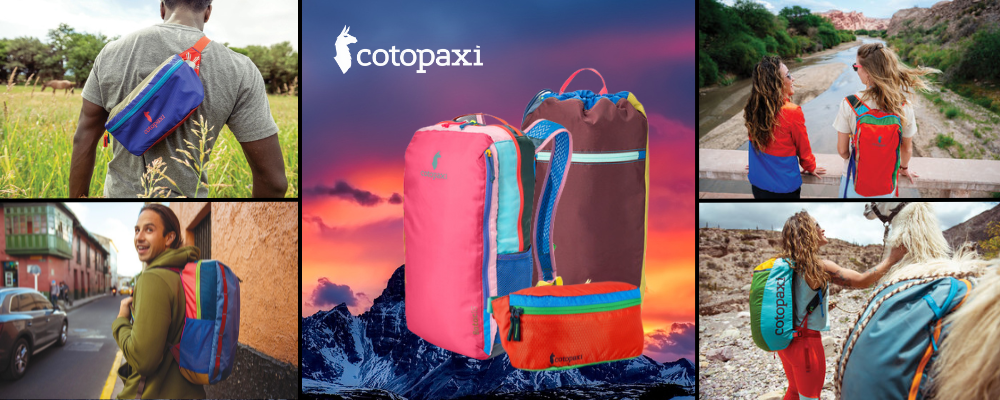
Denik
Denik, which produces custom notebooks and journals used by some of the largest companies in the world, donates a share of its revenue to various educational initiatives around the world.
So far, the company has funded seven schools and has enhanced the education experience of thousands of students in such diverse locations as Mali, Guatemala, Laos, Ghana, Nicaragua, and Senegal, as well as in the U.S.
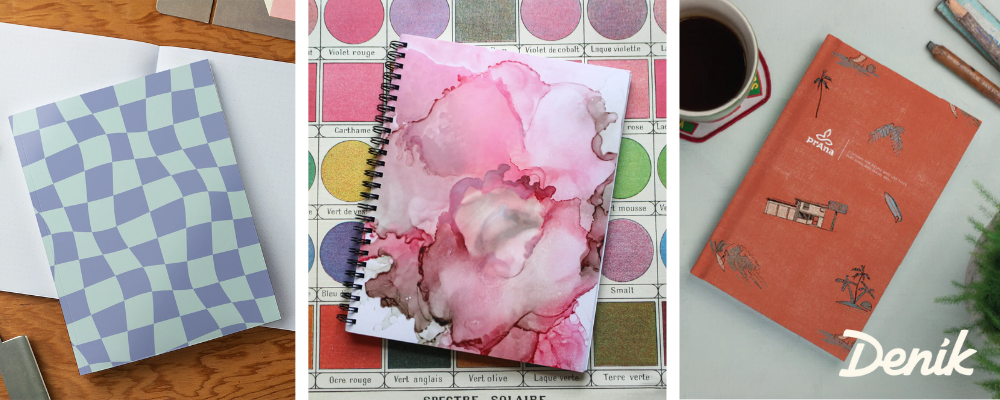
Econscious
Econscious creates quality, long-lasting, sustainable apparel and accessories that are responsibly made, demonstrating their ongoing commitment to the environment.
Like Cotopaxi, the company is a member of the global 1% for the Planet organization, donating 1% of its retail sales to environmental non-profits that are working to “restore, protect, and advocate for our home, planet earth.”
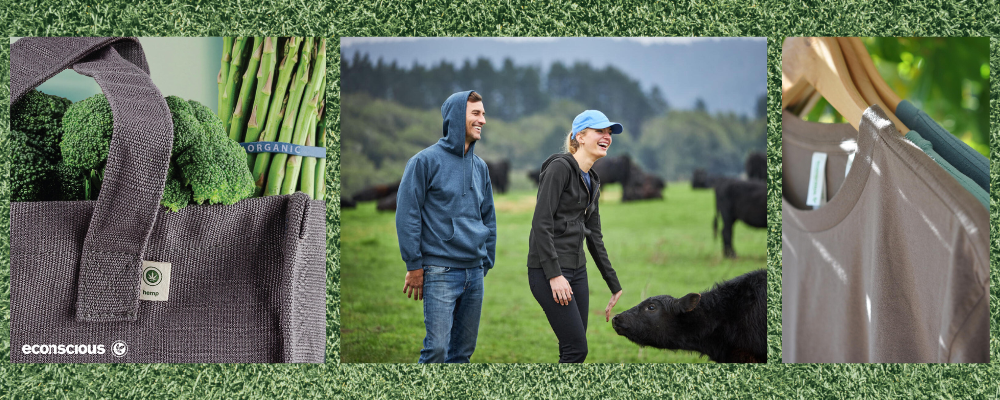
FEED
FEED makes durable and customizable tote and work bags using leather, cotton, and recycled materials. The company is also committed to ending childhood hunger and reducing landfill waste.
Since 2007, FEED has donated 126 million school meals to children, helping to alleviate chronic malnutrition and lift families out of generational poverty. Additionally, FEED carefully scrutinizes its end-to-end supply chain and deliberately chooses materials designed to be kept “in rotation” (i.e. out of landfills), ensuring they leave a minimal environmental footprint.
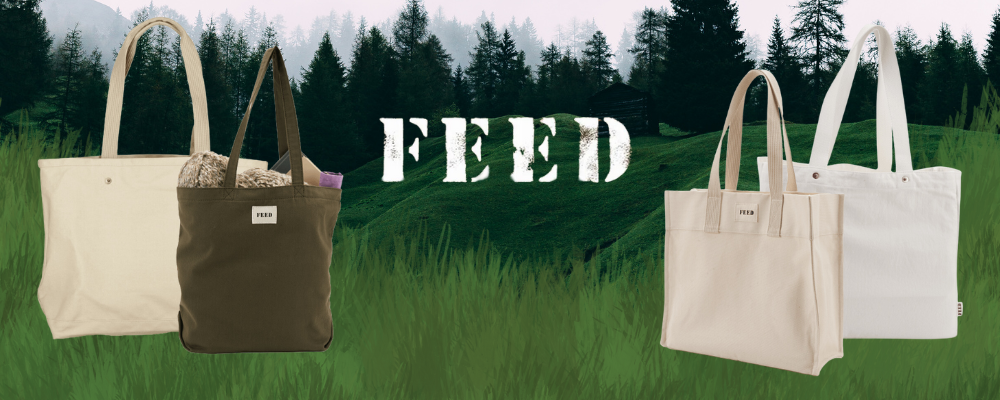
iCool
iCool produces a variety of high-end, customizable cooler bags and drinkware, as well as water bottles, flashlights, and other outdoor products, providing “an elegant way to promote your business.”
The company also donates a portion of all purchases to Shelter to Soldier, a nonprofit organization that adopts dogs from local shelters and trains them to be psychiatric service dogs for post-9/11 veterans suffering from PTSD, traumatic brain injuries, and/or military sexual trauma. Shelter to Soldier also places emotional support animals with active-duty military and veterans and deploys therapy dogs and volunteer handlers to provide comfort and love to impacted military, veterans, and their families.
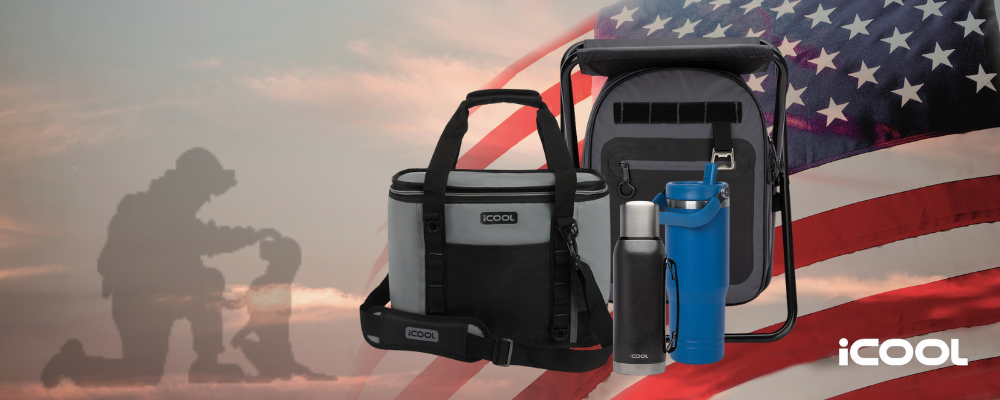
The North Face
A well-known high-end brand, The North Face began producing outdoor clothing, footwear, and other related equipment in 1966. Today, the brand has expanded beyond its outdoor roots, branching out into a more high-end streetwear status symbol label.
The North Face is committed to a number of sustainability activities. These include circularity, designed to reduce the amount of discarded materials that end up in landfills; producing apparel fabrics from recycled, responsibly sourced renewable or regeneratively grown sources; reducing supply chain greenhouse gas emissions by partnering with key suppliers; and eliminating single-use plastics in their packaging.
Patriot Coolers
Patriot Coolers offers hard and soft coolers and insulated drinkware that reflect incredible functionality, substantial durability, and exceptional attention to detail. Founded in 2018 by a father-son team who fled apartheid in their homeland of South Africa, Patriot provides jobs for hundreds of people across the U.S.
To thank the country that helped them achieve their dream, Patriot Coolers donates a portion of every purchase to Homes for Our Troops, a 501(c)3 non-profit that builds and donates accessible housing to severely injured post 9/11 veterans nationwide. To date, the company has contributed $370,000 to help men and women who served and sacrificed for their country.
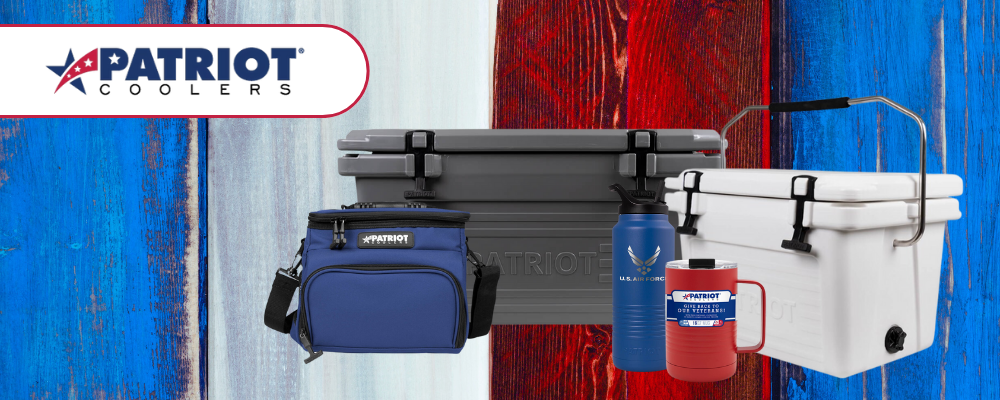
RIPL
RIPL produces “premium swag”—water bottles, notebooks, and tote bags—that, according to the company, sets off a “massive ripple effect of positive change.”
What makes RIPL unique is that each product benefits the environment in a different way. For instance, proceeds from every RIPL bottle sold funds a full day of employment for a local in Bali by paying them to collect plastic from beaches—refuse that would otherwise end up in the ocean. Profits from every RIPL notebook sold are used to buy and protect 1,000 square feet of rainforest in Brazil, saving it from deforestation and protecting the endangered species that live there. Similarly, for every tote bag that is purchased, money is donated to protect 1,000 square feet of rainforest from logging and mining.
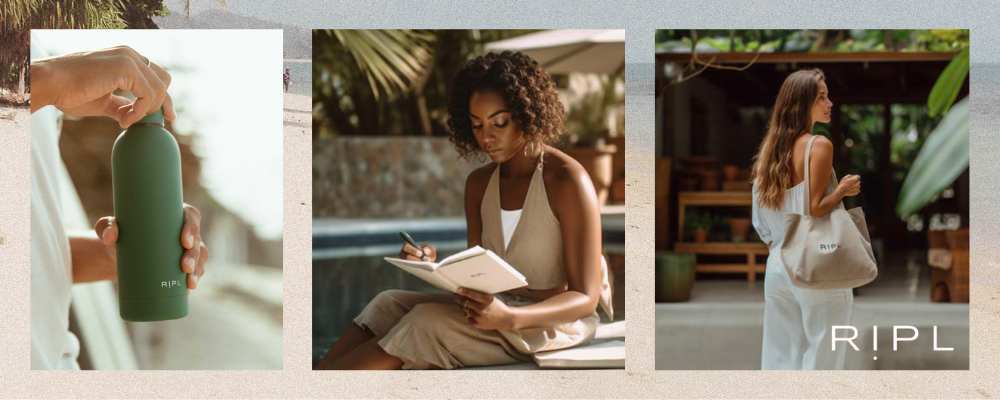
Solo New York
Solo New York, which makes bags, backpacks, luggage, and other accessories, engages in a number of socially responsible practices to reduce its carbon footprint. From installing 1,400 solar panels at its Long Island, New York headquarters to implementing a zero-tolerance plastic water bottle policy designed to reduce plastic waste, the company is doing its part to make the world a better place.
Those efforts extend to the product line. Solo New York takes discarded plastic bottles and cleanly transforms them into lightweight, high-quality recycled Polyester yarn that is used to produce their signature sustainable bags. Using proceeds from these eco-friendly bags, the company—in partnership with the National Forest Foundation—is planting trees to help reforest U.S. National Forests. Each bag sold results in one tree planted.
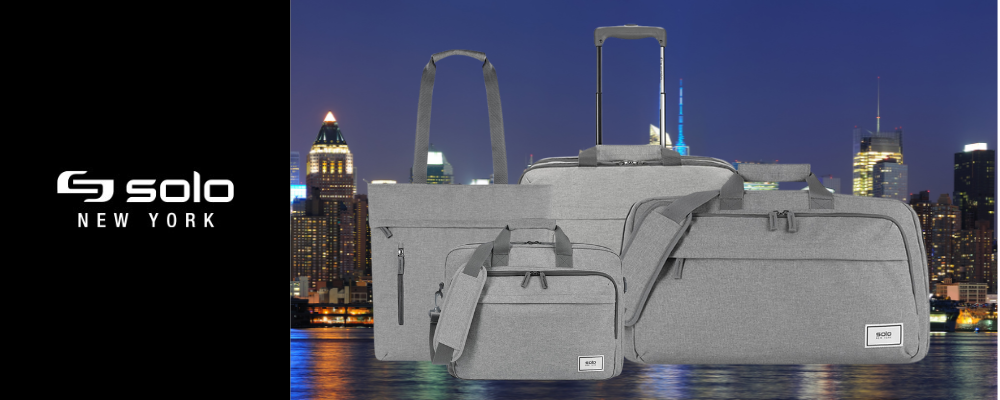
Terra Thread
Another bag and apparel manufacturer, Terra Thread creates products for “conscious consumers, corporations, and NGOs who are looking to make a positive impact on the world.”
To that end, the company works with Feeding America, a nationwide network of 200 food banks that is leading the fight against hunger in the United States. Every Terra Thread bag sold results in a donation to the charity, which secures and distributes at least 10 meals for every dollar raised. So far, Terra Thread has helped donate more than 2 million meals.
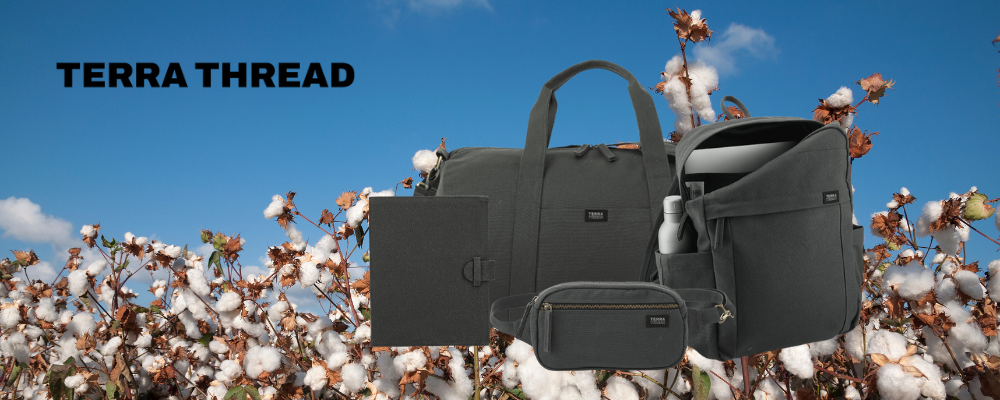
Threadfast Apparel
Threadfast Apparel produces high-end t-shirts and other outerwear for men, women, and kids. Committed to sustainable business practices, the company strives to incorporate best practices into their environmental, social, and governance (ESG) approach.
With a focus on sustainable materials, the company has successfully transitioned to using recycled polyester across all its collections. Threadfast is also a proud member of Better Cotton, which sources the material in a more sustainable manner for farmers and the environment. And through the Plant with Threadfast program, for every garment sold, the company plants a tree in areas affected by deforestation.
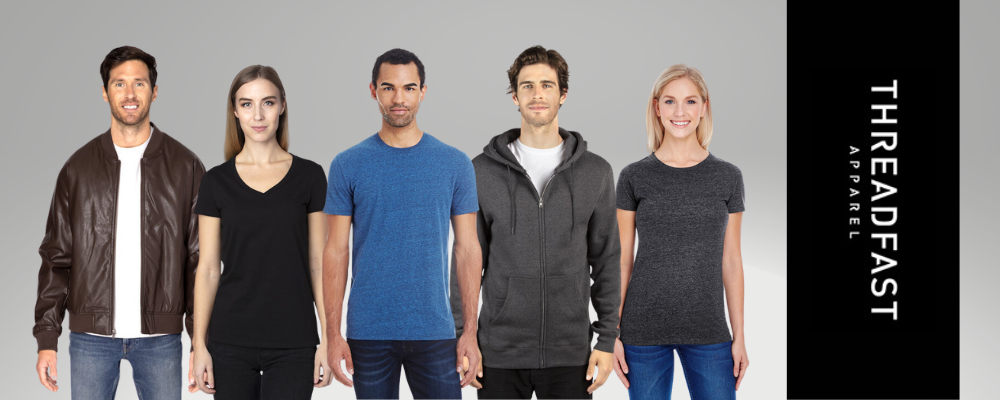
Practicing What They Preach
Each of these companies practice what they preach, conducting their business in way that makes a positive difference in the world.
To learn more about what they do, we encourage you to visit their websites and do additional research. And if there other companies you’re interested in working with but are unsure of their “social” status, just ask us—we’d be happy to look into it for you.

